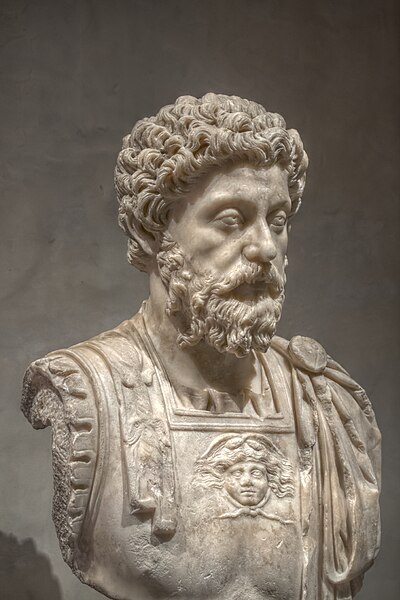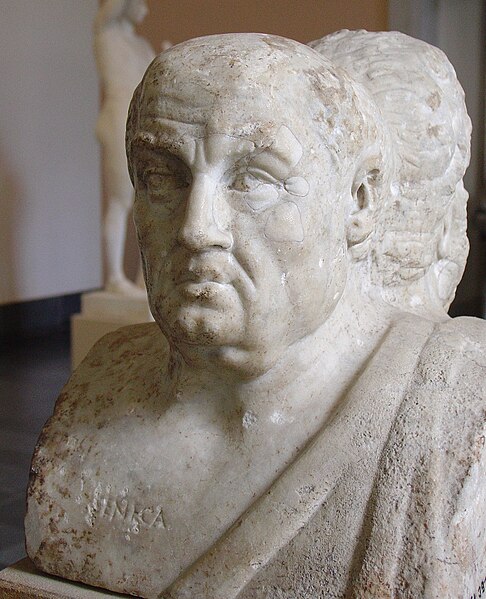Panaetius of Rhodes was an ancient Greek Stoic philosopher. He was a pupil of Diogenes of Babylon and Antipater of Tarsus in Athens, before moving to Rome where he did much to introduce Stoic doctrines to the city, thanks to the patronage of Scipio Aemilianus. After the death of Scipio in 129 BC, he returned to the Stoic school in Athens, and was its last undisputed scholarch. With Panaetius, Stoicism became much more eclectic. His most famous work was his On Duties, the principal source used by Cicero in his own work of the same name.
Panaetius, depicted as a medieval scholar in the Nuremberg Chronicle
Stoicism is a school of Hellenistic philosophy that flourished in Ancient Greece and Ancient Rome. The Stoics believed that the practice of virtue is enough to achieve eudaimonia: a well-lived life. The Stoics identified the path to achieving it with a life spent practicing the four virtues in everyday life: wisdom, courage, temperance or moderation, and justice, and living in accordance with nature. It was founded in the ancient Agora of Athens by Zeno of Citium around 300 BC.
A bust of Zeno of Citium, considered the founder of Stoicism
Chrysippus, the third leader of the Stoic school, wrote over 300 books on logic. His works were lost, but an outline of his logical system can be reconstructed from fragments and testimony.
Marcus Aurelius, the Stoic Roman emperor
A bust of Seneca, a Stoic philosopher from the Roman empire who served as an adviser to Nero





